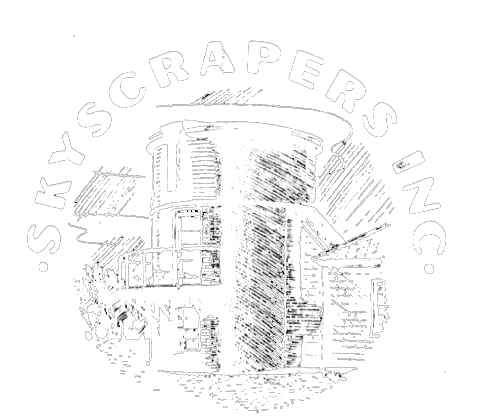
AstroAssembly 2025
AstroAssembly 2025 Registration
AstroEve Friday Night
Socializing
Short Talks by participants
- The Influence of Music on Astronomy by Tony Costanzo
- Is the Moon made of Parmesan or Brie? How tides tell us what's inside the Moon by Nicholas Wagner
- A Trip to Cerro Tololo by Anthony Englert
- The Mysterious Histories of Hot Jupiters by Michelle Vick
Observing, weather permitting
Saturday Program
All day Saturday at Seagrave Observatory
Swap Table (please bring your own table), Solar Viewing, Astro-Imaging Contest, Homemade Telescopes (bring yours!).
AstroAssembly 2025 Registration
Solar Observing Forum
Come observe the Sun! Check out the varied equipment our members use to capture solar images. If you have something unique to share, bring it along and setup in our courtyard.
Skyscrapers Memorial
A celebration of the lives and contributions of members Tina and Dave Huestis. We will also invite those present to share their special memories.
Deli Lunch
Choice of Grinder (Italian Deluxe, Turkey or Roast Beef), Spinach Pie or Salad (Garden, Garden w/ Grilled Chicken).
More information at registration link.
$15 per person.
Pre-order and payment with registration required.
Astro-Imaging Contest: Noon to 4:00 PM
The rules and categories for the 2025 Astrophotography contest have been updated. See Astro-Imaging Entry Form for more information.
Meteorology & Astronomy - How Each “Sky Science” Relies on the Other
A.J. Mastrangelo
There's nothing more frustrating than putting resources into place for a night of sky watching when the weather doesn't turn out as planned. Just a subtle change in present weather conditions can have a drastic effect on the forecast, especially pertaining to sky cover. This presentation will dive into how meteorologists forecast different types and levels of cloud cover, and what tools they use to determine it. What you'll learn during this presentation will not only help avoid potential disappointment, but will give a better sense of what certain elements of a weather forecast mean. Join us as we discuss how Earth and space sciences relate and rely on one another!
Originally from northern Massachusetts, A.J.’s passion for the weather started at an early age. He then went on to study meteorology and atmospheric science at Pennsylvania State University, earning his Bachelor of Science in 2022. While in school, A.J. partook in the university’s student-run Campus Weather Service, and worked as an intern at the Mount Washington Observatory in New Hampshire. Following graduation, A.J.'s first job landed him as a weekday meteorologist at Erie News Now in northwest Pennsylvania. In May of 2024, he moved back east to work as the Weekend Morning Meteorologist at NBC 10 Providence/New Bedford. Aside from forecasting the weather, you can typically find A.J. enjoying the outdoors from the White Mountains to the Rhode Island coastline.
Protocols for Observing Variable Stars with Smart Telescopes
Mark Munkacsy
Smart telescopes have become quite popular. One of their selling points is the ease with which amateurs can build stacked time exposures of deep-sky objects. But can we make collecting scientific data just as easy?
The American Association of Variable Star Observers (AAVSO) is now investigating how to simplify the extraction of quality brightness measurements from smart telescope images. Along the way, the AAVSO's Smart Telescope Working Group has answered fundamental questions about the achievable quality from popular smart telescope models, how to make image analysis painless (and quite automated), and how to provide quick feedback to the observer in the form of lightcurves and descriptions of how their images and data are being used.
Mark Munkacsy has been looking at the sky since fourth grade, and now has contributed over 30,000 variable stars observations to the AAVSO over a 30-year span. Mark is on the AAVSO Board of Directors, is leading their Smart Telescope Working Group, and is acting Director of the observatory at the University of Massachusetts - Dartmouth. Mark has also teamed with Michael Corvese in a series of library-based astronomy outreach programs for elementary-aged space enthusiasts.
The Formation of Galaxies over Cosmic Time
Raymond Simons
Dr. Simons will discuss our emerging picture of the formation of galaxies in the early universe and their evolution to the present day. Galaxies evolve in a lively ecosystem, assembling through actions that re-shape their structure on short timescales. First, I will show how this bears out in the imaging and spectroscopic observations of real galaxies. Then, I will show how we are using hydrodynamical simulations of galaxies to interpret these observations, to make forecasts for our next generation of observatories, and to probe the detailed structure and kinematics of the circumgalactic gas around galaxies.
Dr. Raymond Simons joined Providence College as an Assistant Professor in 2024. He received his Ph.D. from Johns Hopkins University in 2018 and completed postdoc appointments at the Space Telescope Science Institute and the University of Connecticut. He studies how galaxies develop structure using observations and numerical simulations, and is the PI of an upcoming JWST program aimed at measuring the kinematics of galaxies in the early universe.
Socializing & Light Dinner
Pizza, snacks, soda, water and coffee included with basic registration.
The Life and Times of William Tyler Olcott
Rick Lynch
A review of the life of William Tyler Olcott, a notable amateur astronomer and well-known author who was also a founding member of the AAVSO (American Association of Variable Star Observers). A visit to the sites associated with his life and observing, as well as a review of his many books on astronomy.
Rick Lynch is a nearly 60-year member of Skyscrapers. He observes from his twin observatories located just over a mile from Seagrave Memorial Observatory, primarily interested in deep-sky observing, double stars, and comets and meteors. Rick also has a strong interest in researching important historical figures who have impacted amateur astronomy.
Observing at Seagrave Memorial Observatory
The observatory’s telescopes will be available for observing (weather permitting), or set up your own telescope on the grounds.